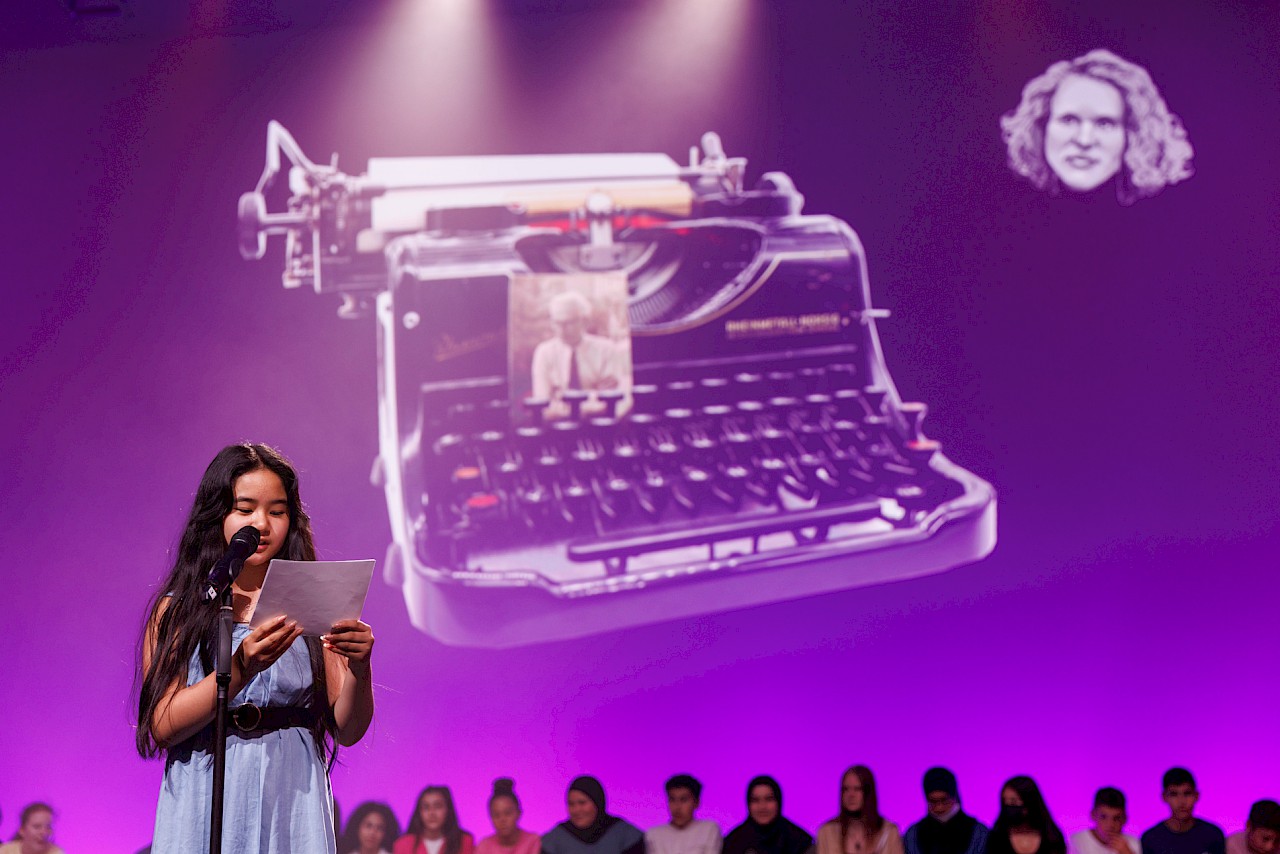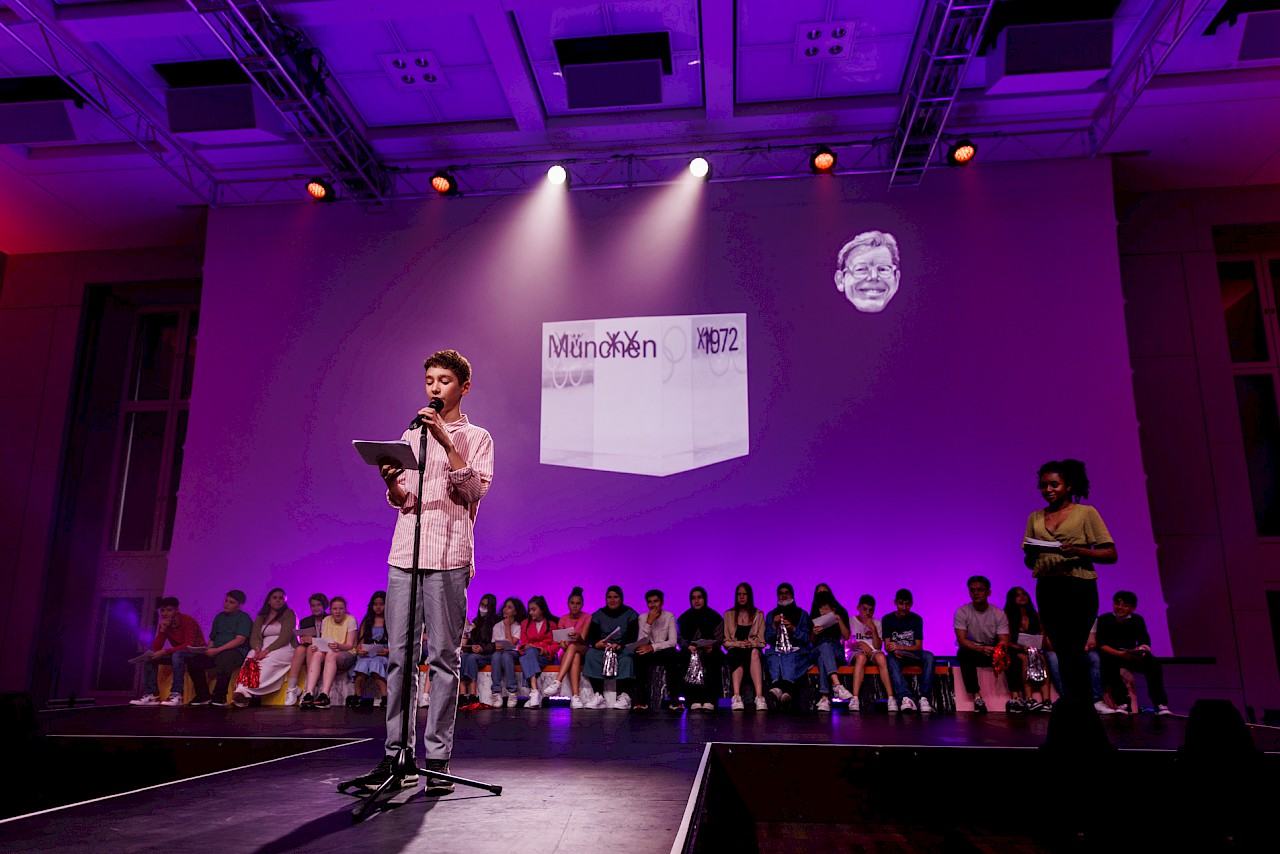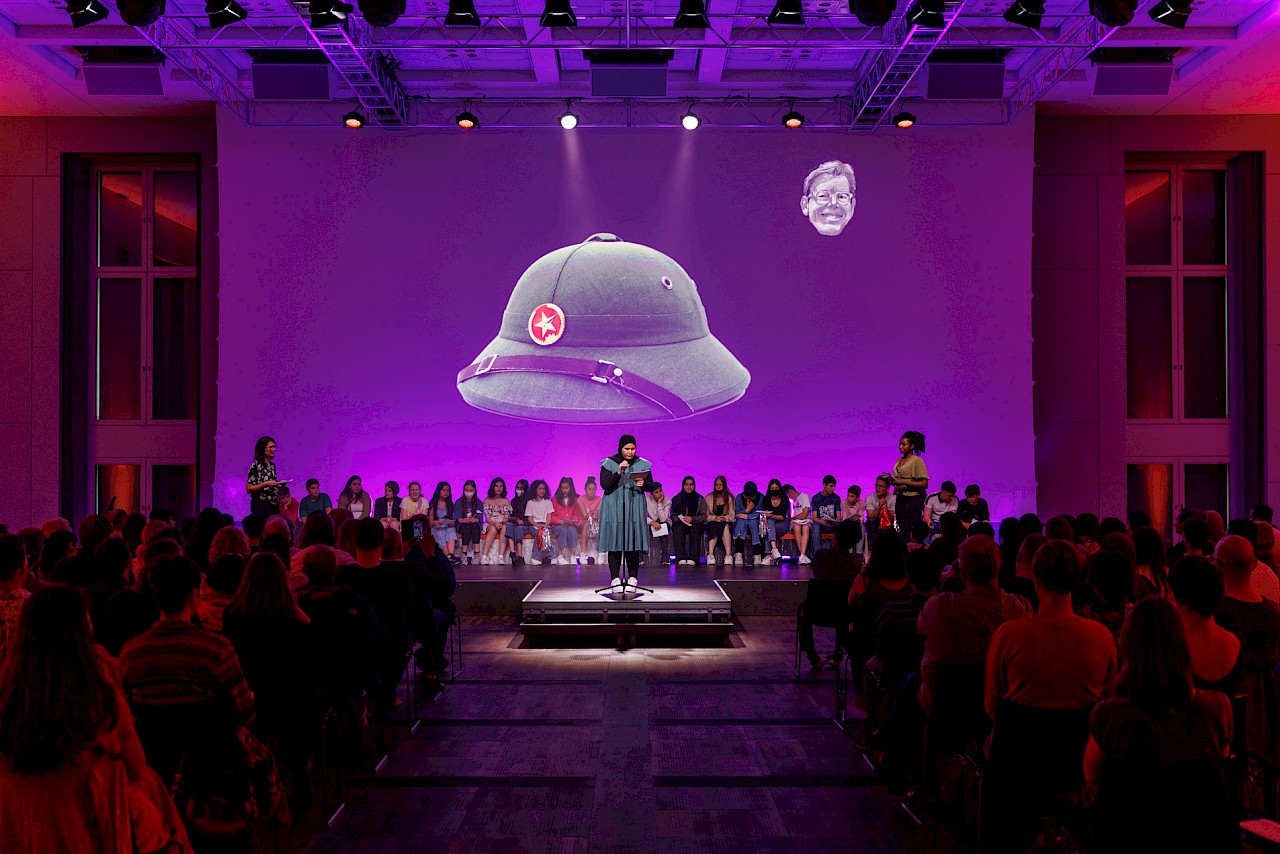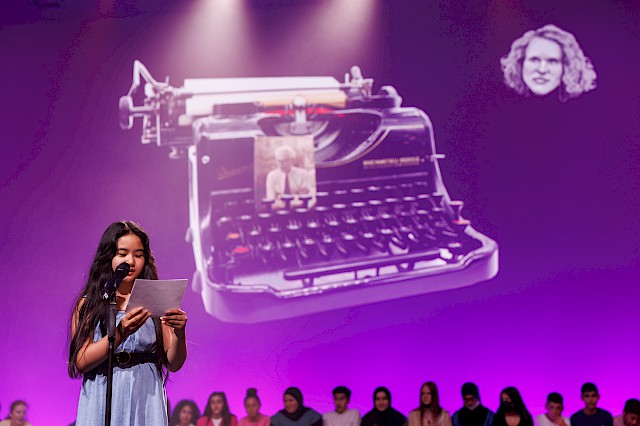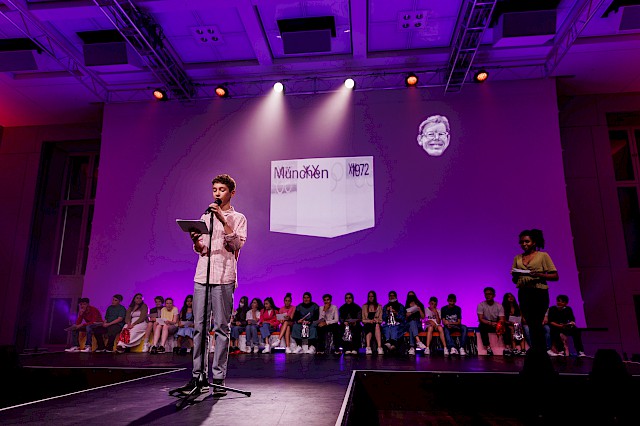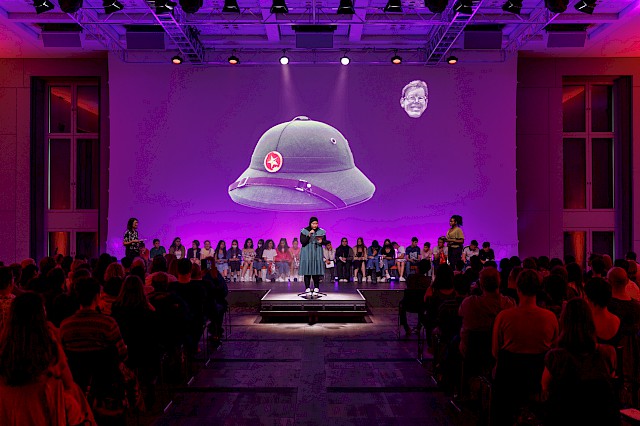LOL100
Titel, Wann, Wo
LOL100: the lives of the leaders in 100 objects, 2022, Berlin
Forschungsfrage/-thema
Who are the leaders of the Humboldt Forum, what do their household objects, as selected by a group of 12-year-olds, tell us about them? Can meaningful relationships be fostered between a group of students and some of the key employees of a large cultural institution? Do the leaders of a museum ethnological collection experience any shifts in their understanding, as they become the subject of a playful anthropological gaze? Do the students experience any shifts in their understanding as they travel to new neighborhoods, explore the leaders' homes and are given the freedom to ask the leaders anything they want.
Initiierende / Projektleitung
Darren O’Donnell and Alice Fleming
Beteiligte Institutionen/Kontext und Anbindung
The Humboldt Forum’s education and events departments
Thomas Mann Gymnasium, Märkisches Viertel, Berlin
Mitforschende
Middle school students in 7th grade
Forschungsverfahren & Mittel
Methods: Fieldwork, material observation, object-oriented interviews and participate observation.
In preparation, the students spent a term studying the question: what is a good question. They interviewed each other, they interviewed adult team members from the Humboldt Forum, they interviewed random people on the street, and they interviewed a family member about an important object, and created a short phone video about their findings.
In the classroom, the students Googled the leaders and reported their findings to their peers.
The students, in smaller groups of maximum ten, traveled to different parts of Berlin, to visit eleven of the Humboldt Forum’s leadership team’s homes. Once at the home, they played a name game with the leader, then were invited to ask the leader anything they wanted about the leader’s life in general. They then documented the dwelling with digital cameras, found ten objects that caught their interest and filled out a survey about their observations. This was followed by an interview of the leader, focused on the objects. The leader then provided the group with a meal, which they ate together with the leader.
Präsentationsformate/Dokumentationsformen
A stage-based performance, with archival video and photos. The students presented the 100 objects in groups based on various themes: relationship to grandparents, travel, children, spirituality and objects related to the everyday. The students were also interviewed onstage about their view of the leaders and the experience in general.
Prozessorganisation/Dauer
Part of a weekly Kunst und Culture class at Thomas Mann Gymnasium, with occasional project days occurring at the Humboldt Forum, as well as the eleven site visits, which occurred after school hours, into the evening. The preparatory work on the question of asking good questions occurred from August 2021-Feb 2022. The site visits happened from March 2022 - May 2022. The project was rehearsed in school during after-hours in June 2022 and presented in early July 2022.
Forschungsergebnisse
The students reported:
- They are surprised that all the leaders we met live in apartments, not houses.
- They were surprised that the leaders lived quite ordinary lives.
- They felt welcome in the homes and they continue to recognise and say hello to the leaders, when they’ve bumped into them during subsequent visits to the Humboldt Forum.
- That the leaders were happy to share their public sector classification in terms of their salary, telling the students that they can find this information online, though none were willing to actually state the figure.
The leaders reported:
They felt initially vulnerable and a bit uncomfortable with the visit but all reported enjoying the visit, with some describing the feeling in the end as familial or family-like.
- Hartmut Dorgerloh, the Intendant of Humboldt Forum reported a shift in his understanding of the experience of being the subject of object-based research, with an appreciation that one’s life cannot accurately be summed up or described through objects alone.
They now have a higher stake or interest in the long-term aspect of the project and have reported that the project is an important part of the institution.
When describing the wider project publicly, a number of the leaders tell specific anecdotes about their experience with the students, affirming that it made a lasting impression.
Fotos: Frank Sperling
